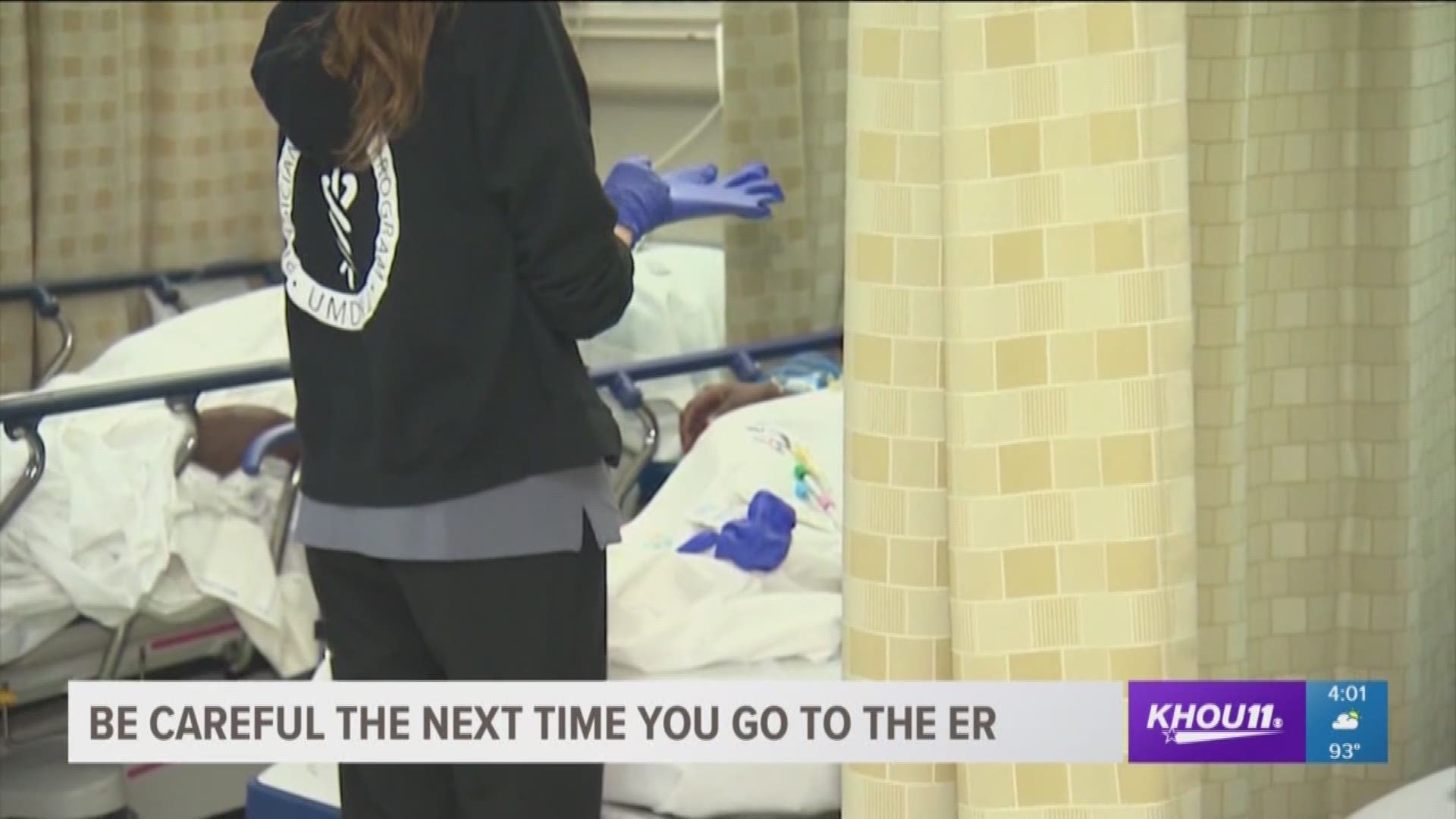HOUSTON - Blue Cross Blue Shield of Texas began a new policy Monday to stop paying certain emergency room claims if they don’t consider the visit necessary.
So how does the procedure work, and how can patients lower the odds of their claim being denied?
James Campbell, Sr. Manager Communications for Blue Cross Blue Shield of Texas, tells KHOU the new “process” concerns only their HMO members, who Campbell says do not have an out-of-network emergency room benefit unless "the required care is emergent."
About 500,000 Texans would be impacted by the change.
"Over the last two months, Blue Cross and Blue Shield of Texas (BCBSTX) has diligently worked with the Texas Department of Insurance, providing all requested information regarding a process – being implemented today – to review emergency room charges of our retail and group HMO members,” according to a company statement. “Combined with continued education and information, we believe this thoughtful, multi-step review process will provide protection for our members from inappropriate billing, egregious charges and fraud, waste and abuse by out-of-network emergency departments."
Campbell says Blue Cross Blue Shield of Texas will review each medical record to make sure they're "taking into account the symptoms that caused the need for the visit while ensuring that the services our members receive are being accurately billed to eliminate inappropriate charges and that the services provided are medically necessary."
Campbell also says claims being reviewed will remain pending and will not be denied during that time. He says a claim will not be denied without review by a licensed physician, and the patient can appeal.
So how do patients know if insurance will cover a trip to the emergency room? BSBSTX put up an infographic on their website clarifying when the ER should and should not be used.
The site also includes links to other resources like a 24/7 nurse-line, video doctor visits, tools for finding non-emergency urgent care clinics and a treatment cost estimator.
On Monday, Rhonda Sandel, CEO of Texas Emergency Care Centers and a board member for the Texas Association of Freestanding Emergency Centers, released a statement arguing the new process is really about driving down ER usage and racking up insurance profits.
Sandel believes the new measure violates a long-held standard on covering emergency care for any patient seriously concerned about their health, even at out-of-network ERs.
“If the Texas Department of Insurance has decided that its mission of protecting Texas insurance consumers no longer applies, we are hopeful that the Texas Legislature will see the need to protect their constituents—and will move to put a stop to this catastrophic, anti-patient, anti-ER policy,” Sandel wrote.
Ben Gonzalez, a spokesperson with the Texas Department of Insurance, told KHOU via email "the standard remains the same" for covering out-of-network care on HMO plans under the new policy.
Gonzalez says when BCBSTX told TDI about its new process, TDI requested a 60-day delay “to ensure the change complied with the prudent layperson standard in state law and that key consumers protections were in place."
“Blue Cross Blue Shield – and all other state regulated health plans – must pay reasonable ER claims when a person believed their health was in serious jeopardy when seeking care,” Gonzalez wrote. “If they don’t, TDI will take enforcement action.”

